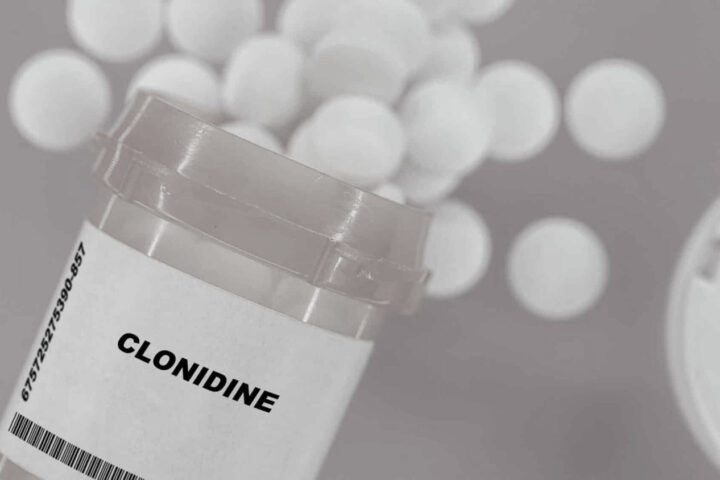Inside the walls of an in-patient rehab center, addressing trauma becomes a fundamental aspect of addiction recovery. As you embark on your journey to heal and overcome addiction, it is crucial to recognize the profound impact that past traumas may have on your life. Trauma can be a significant contributing factor to addiction, and by addressing it head-on, you can begin to lay the groundwork for lasting recovery.
In-patient Rehab
In an in-patient rehab setting, trained professionals understand the intricate relationship between trauma and addiction. They create a safe and supportive environment where you can explore and process your past traumas. Through individual therapy sessions, group therapy, and specialized trauma-focused programs, you will have the opportunity to work through the underlying emotional pain that may have fueled your addictive behaviors. The therapeutic approach is tailored to your specific needs, ensuring that you receive personalized care and attention throughout your healing journey.

One of the primary goals of addressing trauma in in-patient rehab is to provide you with the tools and coping mechanisms necessary to navigate triggers and emotional challenges without resorting to substance abuse. Therapists will guide you in developing healthy coping strategies, enhancing your emotional resilience, and building a solid foundation for sustainable recovery. Through evidence-based techniques such as cognitive-behavioral therapy (CBT), eye movement desensitization and reprocessing (EMDR), and mindfulness practices, you can gradually heal from the wounds of your past and discover healthier ways of managing stress and emotional pain.
Within the supportive community of a rehab center, you will also have the opportunity to connect with others who have experienced similar traumas and addictions. Group therapy and peer support provide a space for sharing experiences, fostering understanding, and realizing that you are not alone in your journey. The power of collective healing and empathy can be transformative, offering a sense of validation and support as you navigate the complexities of trauma and addiction.
Addressing trauma in an in-patient rehab setting is a vital step towards comprehensive recovery. By confronting and working through past traumas, you empower yourself to break free from the cycle of addiction and reclaim control over your life. Remember, healing takes time and patience, but with the guidance and support of professionals in a rehab center, you can embark on a transformative journey towards a brighter and healthier future.
Frequently Asked Questions About Addressing Trauma in in-patient Rehab for Addiction Recovery
| FAQ | Answer |
|---|---|
| What is the connection between trauma and addiction? | Trauma can be a significant contributing factor to addiction. Unresolved trauma can lead individuals to use substances as a way to cope with the emotional pain and distress. |
| How can addressing trauma benefit my addiction recovery? | Addressing trauma helps individuals heal from the underlying emotional wounds that may have fueled their addictive behaviors. By working through trauma, you can develop healthier coping mechanisms and reduce the risk of relapse. |
| Is trauma-focused therapy available in the rehab center? | Yes, many in-patient rehab centers offer trauma-focused therapy as part of their comprehensive treatment approach. Trained therapists use evidence-based techniques to help individuals process and heal from trauma. |
| What are some common therapeutic approaches for trauma? | Common therapeutic approaches for trauma include cognitive-behavioral therapy (CBT), eye movement desensitization and reprocessing (EMDR), and somatic experiencing. These techniques help individuals process traumatic memories and promote healing. |
| Will I have access to individual therapy sessions? | Yes, most in-patient rehab centers provide individual therapy sessions with trained therapists who specialize in trauma. These sessions allow for personalized attention and tailored treatment plans. |
| How long does it take to heal from trauma in rehab? | The healing process varies for each individual. It depends on the severity of the trauma, the individual’s readiness to address it, and their response to therapy. Healing from trauma is a journey that takes time, patience, and consistent effort. |
| Are there support groups or peer networks for trauma survivors? | Yes, in-patient rehab centers often offer support groups and peer networks where individuals can connect with others who have experienced similar traumas. These groups provide a sense of understanding, validation, and support. |
| Will I be able to continue trauma therapy after leaving rehab? | Many rehab centers provide resources and referrals for ongoing trauma therapy after completing the in-patient program. It is important to have a plan in place to continue therapy and support in the community. |
| How can I prepare myself for addressing trauma in rehab? | It is helpful to approach therapy with an open mind and a willingness to explore and process difficult emotions. Taking care of your physical and emotional well-being, and being honest and transparent with your therapists, can also contribute to a more effective healing process. |
| Will I have privacy and confidentiality during therapy sessions? | Yes, confidentiality is a crucial aspect of therapy. In-patient rehab centers uphold strict privacy policies to ensure that your personal information and therapy sessions remain confidential and protected. |
Addressing trauma in in-patient rehab for addiction recovery is a vital step towards holistic healing and lasting recovery. By recognizing and working through the underlying wounds of trauma, you can break free from the chains that have held you back and create a brighter future for yourself.
Remember, your journey towards healing is unique and deeply personal. It takes courage, resilience, and a willingness to face the pain of the past. In the safe and supportive environment of a rehab center, you have the opportunity to unravel the layers of trauma, heal the wounds, and reclaim your life.
As the renowned author Maya Angelou once said, “You may encounter many defeats, but you must not be defeated. In fact, it may be necessary to encounter the defeats so you can know who you are, what you can rise from, how you can still come out of it.” These words remind us that overcoming trauma and addiction is possible, and every step forward, no matter how challenging, brings you closer to a brighter and more fulfilling future.
So, embrace the journey of addressing trauma in in-patient rehab with hope and determination. Trust in the process, lean on the support of compassionate professionals, and believe in your own inner strength. You are capable of healing, growth, and a life beyond addiction. Take that first step towards a transformed tomorrow, where you can live free from the weight of trauma and embrace a life of joy, purpose, and possibility.



